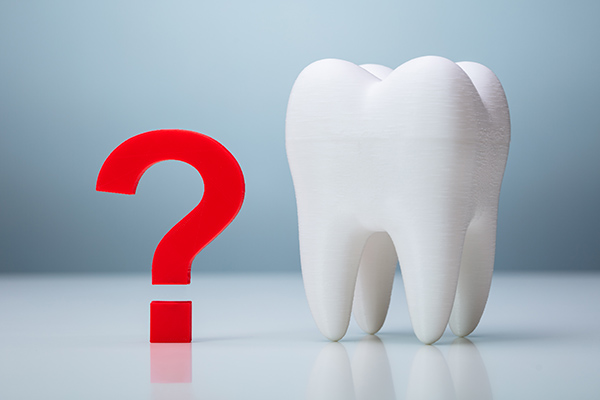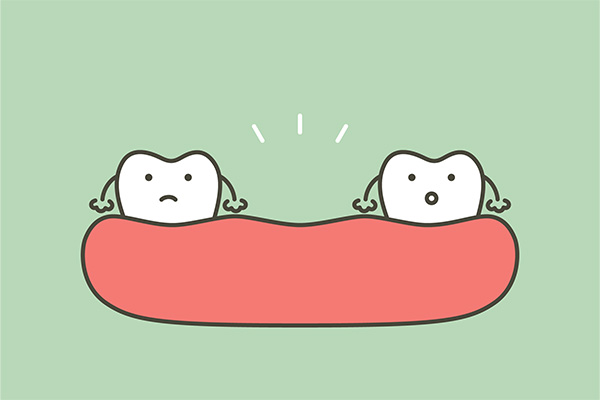Proper Techniques for At-Home Dental Care from a Family Dentist

A family dentist can help patients in a variety of ways, but the majority of dental care should take place at home each day. By learning and implementing proper at-home dental care techniques, you can significantly reduce the risk of oral health concerns such as cavities, tooth infections and much more.
Effective at-home dental care tips from a family dentist
There are various small oral hygiene tips family dentists often provide that should be implemented each day. In general, eating a diet that is complementary to good oral health and keeping teeth and gums is a good combination of preventing oral health concerns. The following is a more in-depth look at how to practice good oral hygiene at home.
Brush the entire mouth gently
A common mistake that many make is brushing too hard. This often occurs as an effort to practice good oral hygiene and is done with good intentions, but brushing too hard can damage the gums and eventually contribute to gum erosion. Gum erosion can expose the tooth root and leave you more vulnerable to a tooth infection and other oral health concerns. Instead, be certain to brush gently — although also thoroughly — in every area of the mouth, including the cheeks and tongue.
Reduce consumption of sugary foods
Sugar and other carbohydrates can become incredibly harmful to dental enamel and the gums. This is because sugar can combine with bacteria inside the mouth to create an acidic reaction that breaks down the enamel and weakens the gums. Eventually, this can cause cavities and increase the risk of an oral infection. You can reduce these risks by limiting the intake of sugary foods and drinks, and instead, consider drinking water throughout the day and eating products that are good for teeth.
Use fluoride toothpaste and mouthwash
Whereas sugar can harm tooth enamel, fluoride is very helpful to the enamel. Fluoride strengthens teeth and can help protect teeth from enamel erosion, and it is safe to use. Your family dentist should discuss the importance of fluoride with at-home dental care, and most family dentists recommend using a fluoride-based toothpaste and mouthwash that contains fluoride to reduce the risk of cavities.
Check for signs of oral health complications
Brushing, flossing and using mouthwash as directed by your family dentist can help prevent oral health concerns from developing, but it is still important to check for the early signs of complications and seek assistance from a dentist if signs develop. Several of the more notable signs to check for are worn-down enamel, discolored or bleeding gums and gum swelling. Being able to detect the early signs of trouble and seeking treatment can help prevent the issue from worsening and requiring more extensive treatment.
Ready to get started?
If you would like to learn more about oral hygiene or have dental concerns that need treatment, then reach out to our family dentistry team today for more information. We are glad to answer questions you have and provide more insights on how you can care for your oral health at home.
Request an appointment here: https://dentistryonpark.com or call Dentistry on Park, LLC at (781) 443-8131 for an appointment in our Stoughton office.
Check out what others are saying about our services on Yelp: Read our Yelp reviews.
Recent Posts
It is amazing the amount of confidence that comes from the options for replacing missing teeth. The absence of a tooth or even multiple teeth can make daily tasks like eating and speaking more difficult than they must be. For those who suffer from this, just having the ability to learn more about options can…
There are a variety of common reasons people are missing teeth. Missing teeth can cause many oral health problems, including difficulty chewing food and the gradual movement and misalignment of your teeth over time. However, there are solutions to dealing with missing teeth, including dental implants, implant-supported bridges, and removable partial dentures. Read on to…
Clear aligners are becoming an increasingly popular way to straighten teeth that are crooked, protruding, or crowded. They offer an array of benefits that traditional braces do not as the entire process is completely different. Instead of metal wires and brackets, the teeth are shielded by flexible plastic pieces that go directly over the top…
Dental implants are a newer option for replacing missing teeth. They involve a titanium screw inserted into the jawbone, and then months later, once the jawbone has healed and the screw is fused into the bone, a crown is attached to the screw.It can be expensive to get dental implants, but since they offer full…


